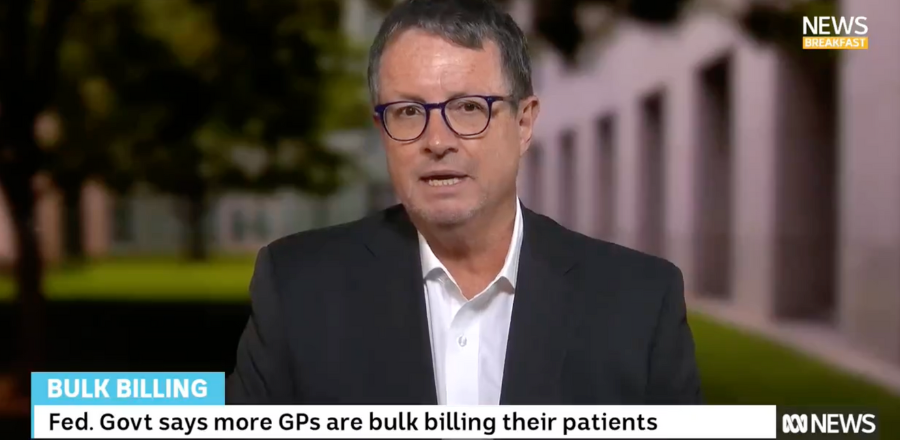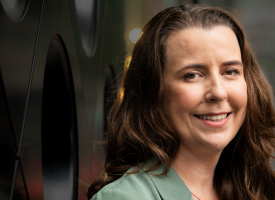Professor Steve Robson on 40 years of Medicare and bulk billing figures
Transcript: AMA President, Professor Stephen Robson, Outlet: ABC News Breakfast, Thursday, 1 February 2024
Subject: 40 years of Medicare and bulk billing figures

LISA MILLAR: Well, it's estimated around 360,000 more trips to the GP have been bulk billed since an incentive for doctors was tripled in November. The Federal Government's released the figures today because they're marking the 40th anniversary of Medicare. We know the health system has been under strain, so to tell us whether this is making a difference or not the AMA President, Steve Robson, joins us now. Steve, good morning. Welcome to News Breakfast.
STEVE ROBSON: Good morning Lisa.
LISA MILLAR: Okay. Well, has it made a difference?
STEVE ROBSON: Well look, we know that bulk billing was in very sharp decline around the country and things were reaching crisis point last year. The suite of financial incentives to improve bulk billing came in toward the end of last year, and the information we're seeing is pleasing. It certainly seems to have arrested and stopped that sharp decline. And in a number of places around the country, particularly for vulnerable Australians, we've seen an uptick in bulk billing. So it means that a lot of the most vulnerable Australians now are in a position of having more accessible healthcare. It seems from all the early signs that it's had a positive effect, so that's a good thing to see.
LISA MILLAR: Yeah, we get a lot of people contacting our program about the difficulty of simply getting in to see a doctor. They can't get appointments. So when do we start seeing a difference there?
STEVE ROBSON: So I think that's a really good question. We know that for decades successive governments have neglected Medicare and it really has fallen into disrepair. It's going to take a lot of work, a big commitment, and it's going to take investment to bring Medicare back to where we think it should be and to make healthcare accessible and affordable for all Australians. And one of the problems is that at the moment, general practice has been so neglected. Young doctors don't want to be general practitioners, so we're hoping that these incentives will make that an attractive career path again. We'll have more GPs training, and that will ease pressure on the systems and allow Australians to get the care they need.
LISA MILLAR: Yeah. You talk about Medicare, 40 years now today, 1 February. There's even a commemorative Medicare card you can get if you need to renew for this year. The reality is, when it was created we didn't really know what kind of population we would be. We are ageing. There is more chronic disease, there is more mental health problems. So you're suggesting there needs to be way more put into Medicare to deal with all of that?
STEVE ROBSON: Yeah. Medicare was introduced when I was a medical student back in the early '80s, and it was a totally different landscape. We now have robotic surgery, we have extraordinary ways of treating people, and of course, the landscape of illness has changed. We have, as you said, chronic mental health problems, diseases like type 2 diabetes. So the landscape has completely changed. And Medicare needs to say “how can we fund the complex, multidisciplinary care that our patients need?” And that really is the big challenge. If we want another 40 years of Medicare, a lot of change is going to have to happen, and we want to see commitment to that, but we think it's worth it.
LISA MILLAR: Well, we've got the Health Minister on the program in the next hour or so. I'll put some of that to him.
Before you go, I just want to ask you about our top story today, which is about the concussion and the recommendations from the AIS in regards to keeping kids in particular off the field for 21 days if they've suffered a concussion. A lot of the big sporting bodies haven't yet signed on to this. How critical do you think this is?
STEVE ROBSON: I think, like all of these things, we have to listen to the science. And at the end of the day, we want the next generation of young Aussie kids to be safe and healthy. And if the evidence tells us that this is the way to protect our kids, I think we need to listen to that.
LISA MILLAR: All right. Steve Robson, thanks for joining us this morning.



